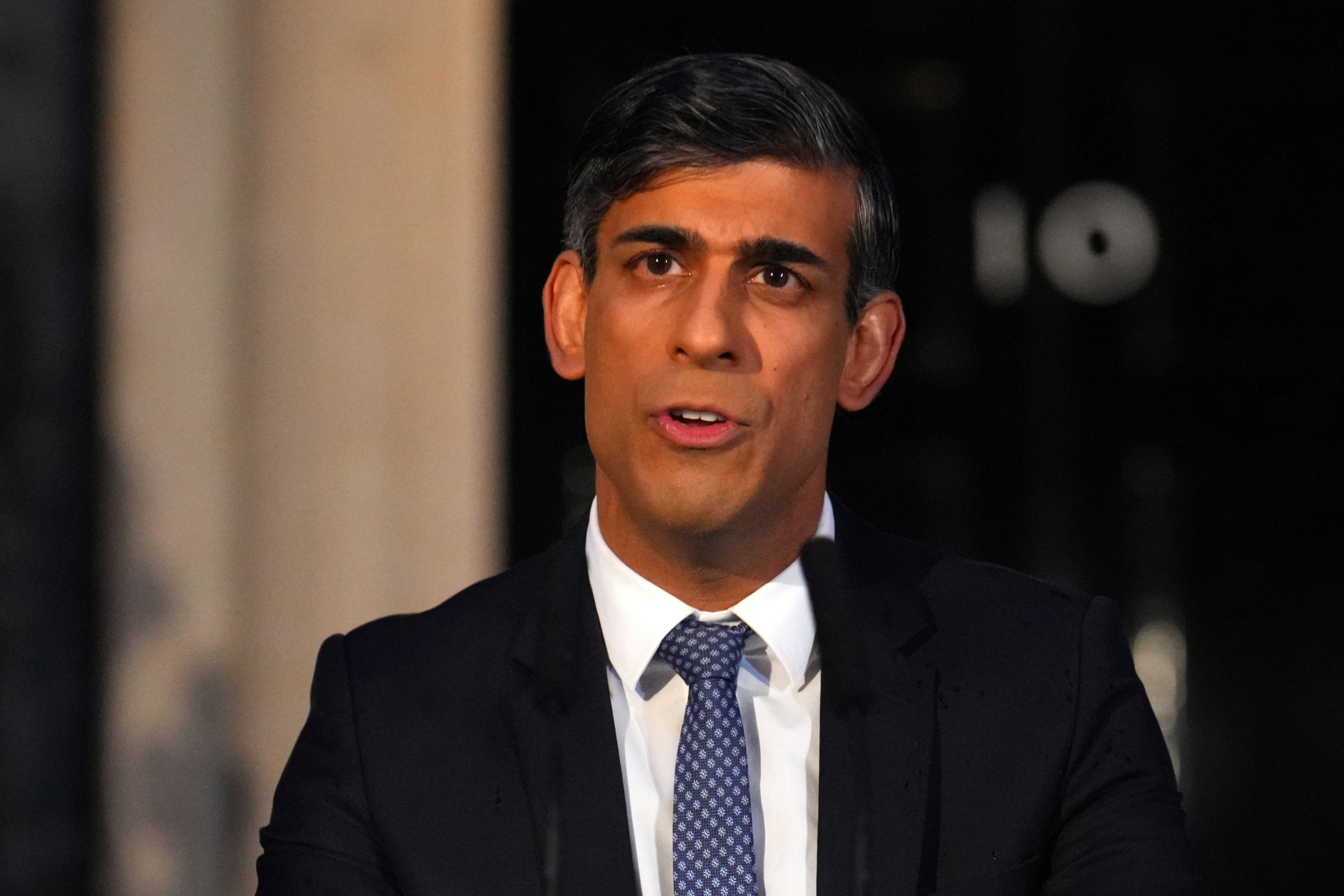A brave speech from Rishi Sunak – but who is he trying to persuade?
The prime minister’s unexpected Downing Street statement was a stirring defence of Britain’s multi-ethnic democracy, writes John Rentoul


When the prime minister says something is “beyond alarming”, that is hardly a reassuring message. Everything Rishi Sunak said in his surprise statement in Downing Street was brave and right, but that he felt he had to say it at all didn’t inspire confidence that he is in command.
When he said, “I need to speak to you all this evening because this situation has gone on long enough,” he sounded as if he was complaining that the government had been asleep on the job.
It is an extraordinary tone for a prime minister to take, listing all the things that have gone wrong recently that could be grouped under the heading of “extremism”, and implying that the government has been doing nothing about them not just “in recent weeks” but “months”.
Worse than that, he implied that Suella Braverman, the home secretary he sacked for using the term “hate marches” about pro-Palestinian demos, might have had a point. Which is strange from someone who only a few days ago was trying to calm the row about Lee Anderson’s comments that Sadiq Khan was “controlled by Islamists” by urging everyone to “take the heat out” of the debate.
And he criticised the voters of Rochdale for making the wrong decision. I agree with him on that, but if you are making an important, unscheduled speech to warn that “our democracy itself is a target”, you need to recognise that sometimes democracy can throw up results that you don’t like. Just as, if you are defending free speech, you have to accept that it includes the right of people to say things that you find offensive.
There was no doubt that this was a speech from Sunak’s heart. At the centre of it was a stirring passage about the success of Britain as a “multi-ethnic, multi-faith democracy”. He is right to celebrate the high levels of tolerance and integration in Britain, compared with most other countries. He is entitled to point to his own party’s proud record of diversity: “I stand here as our country’s first non-white prime minister, leading the most diverse government in our country’s history.”
And he set out an argument that cannot be set out too often about the difference between criticising the actions of the Israeli government and antisemitism.
But the strategic calculation behind the speech was clearly that Sunak feels he had to defend himself against the allegation that the Conservative Party has fallen under the sway of a Trumpian, populist right-wingery, exemplified by Anderson and Braverman. The point of the speech was to stake out Sunak’s claim to the reasonable middle ground – against the Trumpism of the Tory right but also, by implication, against the equivocations of the Labour Party.
It must have stung Sunak that Keir Starmer tried six times at Prime Minister’s Questions this week to tie him to Liz Truss, last seen agreeing on American TV with the extreme views of Steve Bannon, Donald Trump’s former adviser. Sunak needs to put as much ground as he can between Truss, Anderson, Braverman – the whole coterie of populist Tories who may say a lot of things that the general public agree with, but who as an agglomeration start to worry the voters that the Tory party is losing the plot.
Whether a sudden speech on a Friday evening is the right way to go about it, on the other hand, is another question. A lot of the speech was rather vague about who the enemy were, the “they” who have been doing such terrible things to the country under the prime minister’s watch – the “forces” who are “trying to tear us apart”. He said “they” want us to doubt ourselves, “they” want to destroy confidence and hope.
And the measures he proposed sounded both feeble and unconvincing. He is going to “redouble” support for “Prevent”, the anti-radicalisation programme. The home secretary is going to revoke visas of people who “spew hate or seek to intimidate people”. And the government is going to “demand that universities stop extremist activity on campus”, which is something that ministers have been demanding for many decades.
It was a brave and honest speech, in which he set out his sincere pride in Britain, but it must be doubted that it will succeed in persuading the voters that the Tory party is still in safe hands.
Join our commenting forum
Join thought-provoking conversations, follow other Independent readers and see their replies
Comments
Bookmark popover
Removed from bookmarks